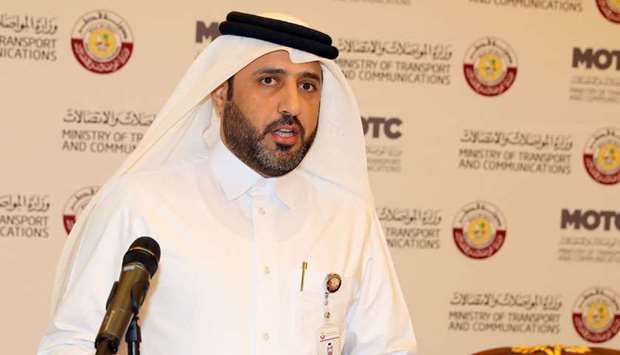*‘Integrated Automated Fare Collection, Ticketing System’ will improve mobility
The Ministry of Transport and Communications (MoTC) unveiled on Wednesday its ‘Integrated Automated Fare Collection and Ticketing System.’
The new system allows commuters to use with ease all types of public transport, such as the metro, the Lusail Light Rail Transit (LRT) system, buses, taxis, and marine transport.
The initiative aims to improve Qatar’s transport system functionality, achieve integration, and encourage people to use public transport frequently by providing a more flexible and seamless system.
MoTC Assistant Undersecretary of Land Transport Affairs Rashid Taleb al-Nabet and Gulf Business Machines Qatar (GBM) board chairman Badr Omar al-Mana signed the contract on Wednesday at the MoTC’s West Bay headquarters. GBM, in partnership with Singapore-based MSI Global, is expected to complete and operate the project by 2020.
Speaking at the signing ceremony, al-Nabet said the initiative aims to achieve a set of environmental goals by reducing emissions that result from the high use of private vehicles. Additionally, it aims to apply the country’s transport systems integration plans by deploying world’s latest technologies and best standards.
The new initiative provides a unified ticketing mechanism for public transport within Qatar’s internal transportation network, latest credit card payment technologies, in addition to payment via smartphones and smartwatches.
Moreover, the new system is hoped to lower traffic-related problems by easing pressure on road networks. It would also help increase traffic safety, achieve the economic goals associated with the efficiency of mobility, transportation, and logistics services, al-Nabet said.
The structure of the project has multiple components for a unified fare collection and ticketing system, including ticketing, ticket vending machines, standalone validators and central clearinghouse, according to al-Nabet.
Some of the new system’s top features would improve mobility and comfort for people, increase traffic safety, reduce energy consumption, limit impact on the environment, and increase productivity, he added.


